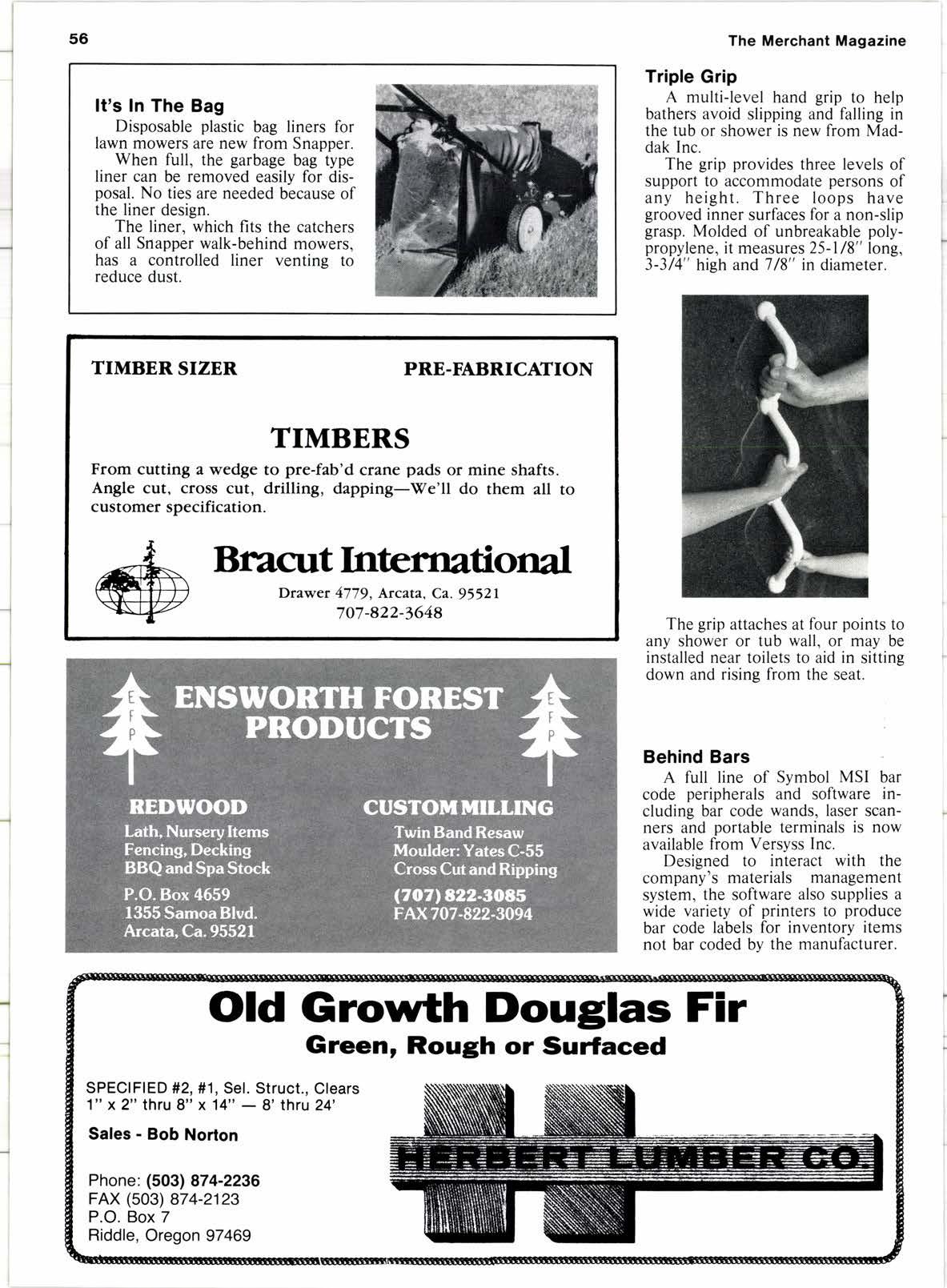
1 minute read
OBITIUARIES
Bert Schradet, 67, president and owner of B. L. Schrader Inc., Bellingham, Wa., died Jan. 10, 1990, in Rancho Mirage, Ca.
Born in Seattle Wa., he entered the lumber business in the mid1940s with Wyman Wholesale, Seattle, before founding his own company in 1951. He also spun off a number of subsidiaries, including Ruskin Lumber Co., Bellingham, and Ruskin Cedar, Oroville, Ca.
Mr. Schrader is survived by his widow, Ruth, two daughters, and one grandson.
Robert D. "Bob" Peterson, former chairman and chief executive officer of Palmer G. Lewis Co., Auburn" Wa.. died Jan. 9. 1990. in Washington. He was 70.
A native of Minneapolis, Mn., Mr. Peterson was graduated from the University of Minnesota, moved to Seattle and received his master's degree in forestry in 1942 from the University of Washington. After serving three years in the Army Air Force during World War II, he joined PGL in 1946 as its first fulltime outside salesman. He was promoted to sales manager in 1952 and president and c.e.o. in 1967, before retiring in 1989.
He was past president of the Seattle Lumbermen's Club and the National Building Material Distributors Association in 1970.
Mr. Peterson is survived by his widow, Jean, two sons, two daughters, three brothers, one sister and six grandchildren.
Paul Lund. 65. retired district manager of United Building Centers, Great Falls, Mt., died Jan. 2, 1990, in Great Falls.
Born in Centralia, Wa., Mr. Lund began his career in 1947 with Monarch Lumber, Shelby, Mt. He later joined Bestway Building Centers. Great Falls. which was sold to United Building Centers in the mid1960s. He retired in 1986.
He served as president -of the Montana Building Material Dealers Association in 1981.
Mr. Lund is survived by his widow, Kathy, one son and one daughter.
Genetically Engineered Trees
The world's first genetically engineered trees - poplars resistant to herbicides so young trees won't be crowded out and killed by weedsare being developed by the U.S. Forest Service.
The trees incorporate a mutant gene from a species of bacteria that commonly causes food poisoning to withstand weed killers so the poplars can be grown rapidly on large plantations. Commonly used as "a fast screen" for conifers, the poplars will be burned to provide energy or converted into ethanol to run cars, scientists said.











